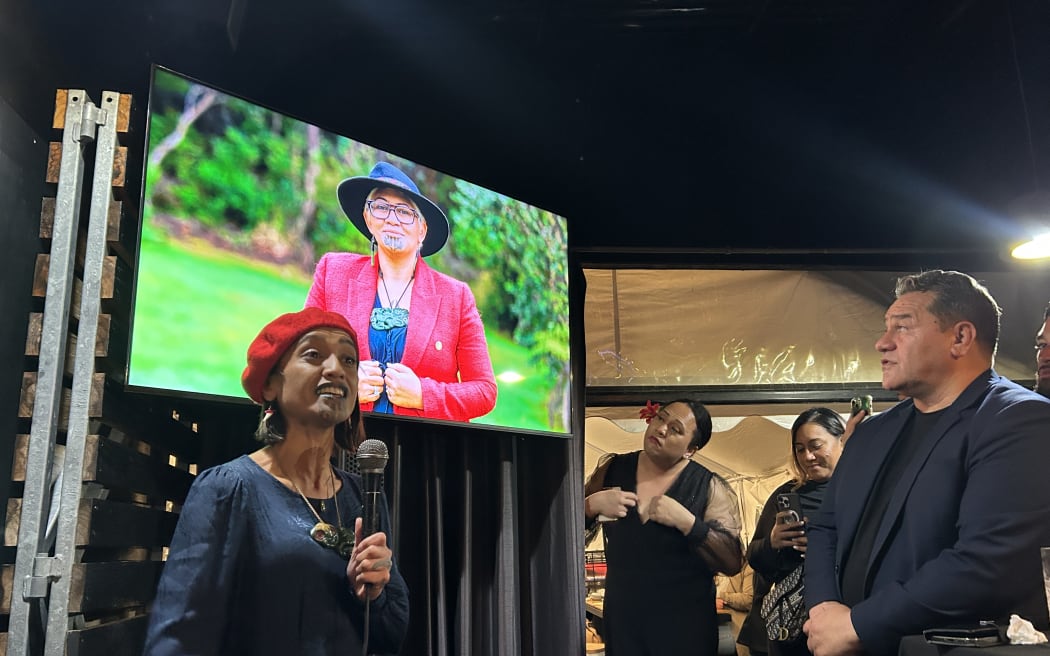Politics
Tāmaki Makaurau By-Election Sees Te Pāti Māori Triumph

The recent by-election in Tāmaki Makaurau has concluded with a significant victory for Te Pāti Māori, following the passing of the party’s former representative, Takutai Tarsh Kemp. Her death not only triggered this election but also cast a long shadow over the campaign, influencing the tone and direction of the candidates’ messages. The result underscores the continuing demand for strong representation of Māori interests in Parliament.
During the campaign, the two main candidates, Oriini Kaipara of Te Pāti Māori and Peeni Henare of the Labour Party, maintained a respectful rivalry. Both candidates frequently referred to each other as whanaunga, or family, highlighting the communal ties that exist within Māori society. Voters observed that a win for Kaipara did not equate to a loss for Henare, who remains in Parliament regardless of the by-election outcome.
Campaign Dynamics and Candidate Backgrounds
Peeni Henare, a seasoned politician with cabinet experience, was seeking to reclaim the seat he lost by a narrow margin of just 44 votes in the 2023 election. He positioned himself as the voice of Tāmaki Makaurau, aiming to strengthen Labour’s mandate among Māori communities. Known for his approachable demeanor, Henare presented a confident image, whether in formal attire or traditional gumboots.
In contrast, Oriini Kaipara, while not a career politician, emphasized her Māori heritage as a powerful political tool. Raised in the traditions of Kura Kaupapa Māori and influenced by the teachings of respected elders, she aligned herself with Te Pāti Māori to bring her community’s voice into Parliament. Her campaign focused on ensuring that the legacy of Takutai Tarsh Kemp was honored, and she successfully increased the party’s margin over Henare by approximately 3,000 votes.
The campaign was marked by tributes to Kemp, reflecting the deep respect held for her within the community. Despite a minor setback involving an ill-advised social media post by Henare, the overall tone remained celebratory of both candidates’ contributions.
Voter Engagement and Future Implications
The by-election witnessed a voter turnout of 27.1 percent, a figure that some analysts consider unimpressive. However, political scientist Lara Greaves noted that the low turnout does not necessarily indicate apathy; rather, many voters recognized that the election would not significantly alter the political landscape, as even the losing candidate would still retain their seat in Parliament.
This election serves as a crucial indicator for the Labour Party, which is working to reclaim six of the seven Māori seats it lost in the previous election. The results suggest that Te Pāti Māori has successfully engaged younger voters, with nearly half of the electorate being under 40 years old. The party’s strong social media presence and grassroots initiatives have resonated with this demographic, allowing them to bypass traditional media channels, which some Māori leaders feel have misrepresented their communities.
As Kaipara prepares to take up her role, the challenge remains for her to balance the historical grievances of Māori representation with the need for accountability in her new position. Her approach may draw criticism from some quarters, but the electoral support indicates a clear desire for representation that is both authentic and unapologetic.
Looking ahead to the 2026 elections, the Labour Party faces a pressing need to connect with the same energy that has propelled Te Pāti Māori to success. The outcome of this by-election not only reflects the current political climate but also signals a broader movement advocating for Māori voices in New Zealand’s political arena.
-

 World2 weeks ago
World2 weeks agoPrivate Funeral Held for Dean Field and His Three Children
-

 Top Stories2 weeks ago
Top Stories2 weeks agoFuneral Planned for Field Siblings After Tragic House Fire
-

 Sports3 months ago
Sports3 months agoNetball New Zealand Stands Down Dame Noeline Taurua for Series
-

 Entertainment3 months ago
Entertainment3 months agoTributes Pour In for Lachlan Rofe, Reality Star, Dead at 47
-

 Entertainment2 months ago
Entertainment2 months agoNew ‘Maverick’ Chaser Joins Beat the Chasers Season Finale
-

 Sports3 months ago
Sports3 months agoSilver Ferns Legend Laura Langman Criticizes Team’s Attitude
-

 Sports1 month ago
Sports1 month agoEli Katoa Rushed to Hospital After Sideline Incident During Match
-

 World3 weeks ago
World3 weeks agoInvestigation Underway in Tragic Sanson House Fire Involving Family
-

 Politics2 months ago
Politics2 months agoNetball NZ Calls for Respect Amid Dame Taurua’s Standoff
-

 Top Stories2 weeks ago
Top Stories2 weeks agoShock and Grief Follow Tragic Family Deaths in New Zealand
-

 Entertainment3 months ago
Entertainment3 months agoKhloe Kardashian Embraces Innovative Stem Cell Therapy in Mexico
-

 World4 months ago
World4 months agoPolice Arrest Multiple Individuals During Funeral for Zain Taikato-Fox





















